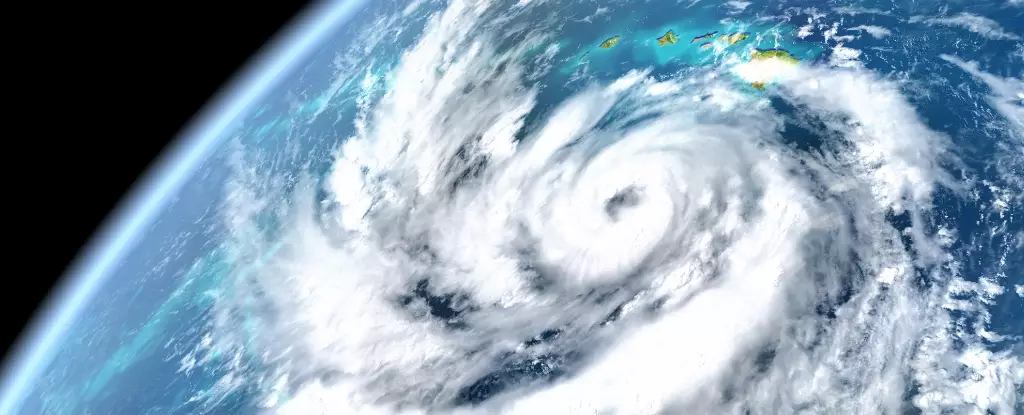The advent of artificial intelligence (AI) has revolutionized multiple sectors, and now it stands on the precipice of transforming how we understand and predict our climate. Among the pioneers in this field is Microsoft’s newly developed AI model, Aurora, which has recently demonstrated an astonishing capability to outperform traditional weather forecasting methodologies. Released findings highlight that Aurora not only beats established systems in tracking air quality but also in predicting severe weather events, including hurricanes and tropical storms, marking a monumental advance in our capacity to respond to climate-related dangers.
A significant takeaway from the research, published in the prestigious journal Nature, is that Aurora generated highly accurate 10-day weather forecasts while maintaining dramatically lower costs and faster processing speeds when compared to conventional forecasting methods. This isn’t just an incremental enhancement; this is a seismic shift—a radical transformation in how we handle the increasingly erratic nature of our climate.
Breaking the Mold in Hurricane Forecasting
What stands out is the claim by researchers that for the first time, an AI can reliably outstrip established forecasting centers like the U.S. National Hurricane Center. The implications are staggering, particularly as we witness a surge in climate-related disasters. With Aurora’s capabilities to accurately predict hurricane trajectories—such as the devastating Doksuri typhoon—it brings hope that, in the near future, the lives threatened by such events can be saved through more reliable forecasting.
Furthermore, the traditional forecasting models that have been the cornerstone of global meteorology are based on physical principles that require immense computational power. Aurora, however, is tailor-made for efficiency. Researchers assert that they achieved results using computational resources hundreds of times less demanding—a strong argument for the potential democratization of sophisticated weather prediction technologies. The assertion that authentic AI can lead to cheaper, faster forecasting services only serves to underline the nexus of technology and public safety.
A Global Race Toward Better Climate Intelligence
The AI realm isn’t an isolated battleground. Global competitors are stepping up their game in response. For instance, Huawei’s Pangu-Weather AI model emerged in 2023, bringing its unique approach to addressing the multifaceted challenges of climate forecasting. In a world where climate change is contributing to radical weather fluctuations, the stakes have never been higher. We’re witnessing a race for technological supremacy that could redefine our engagement with ever-evolving weather patterns.
European agencies, particularly the European Centre for Medium-Range Weather Forecasts (ECMWF), are also pivoting; their own AI learning models are in development alongside traditional systems. According to remarks from ECMWF Director General Florence Rabier, the aim is not merely to keep pace but to revolutionize how forecasting is conducted. Rabier noted that their learning model operates at strikingly lower computational demands, suggesting a momentum shift toward AI in weather prediction.
Ethical Considerations and Future Implications
However, such advances are not without concerns. As we venture further into the AI-dominated future of weather forecasting, ethical questions inevitably arise. The accuracy of AI predictions, while promising, flips the question from solely focusing on the data to how that data is applied and who controls it. Governments, agencies, and even private companies can leverage this technology to sway public opinion, make economic forecasts, and heighten surveillance—all under the guise of combating climate change.
Moreover, as AI systems become more prevalent, reliance on their forecasts could inadvertently lead to complacency among local governments and populations. This is a dangerous precedent: cultivating a trust in AI without ensuring accountability could render communities vulnerable during climate crises. In an age where misinformation spreads rapidly, clarity in how these systems operate is more crucial than ever.
In the end, while all eyes are on the heightened capabilities of AI models like Aurora, we must keep a scrutinizing gaze on the surrounding ethical landscape. The technologies we create wield immense power, and with that power comes responsibility that extends well beyond the parameters of raw data analysis.


Leave a Reply